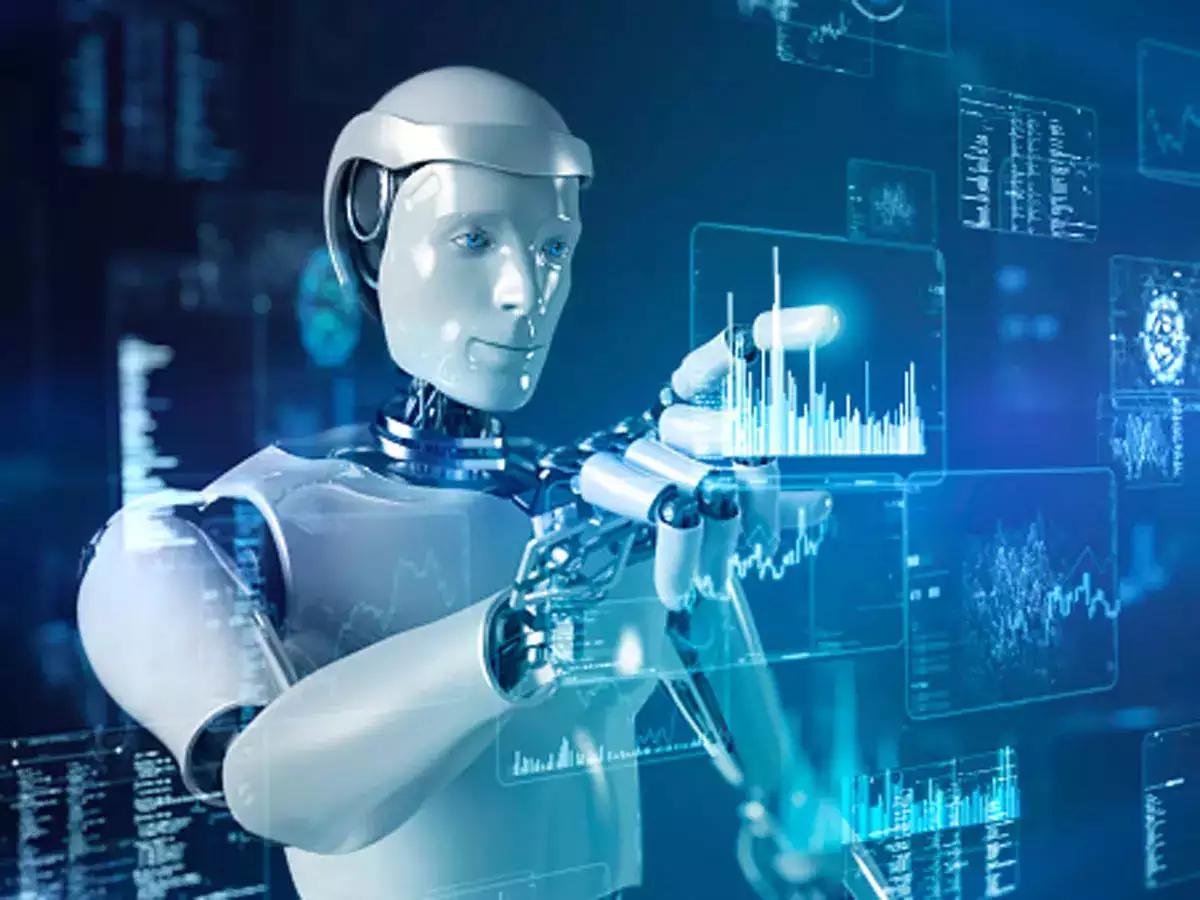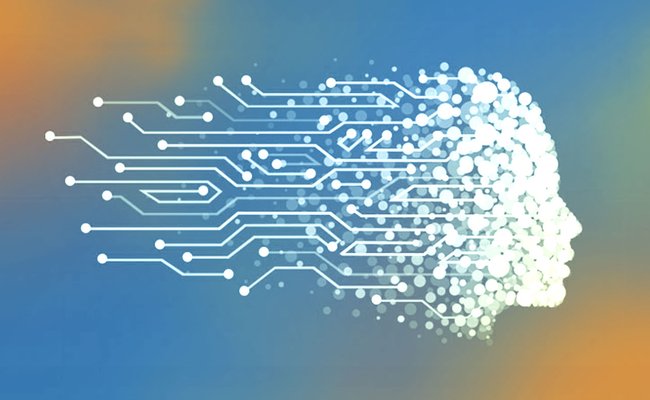
We might earn money when you click links to our partners. Learn More.
What is synthetic basic intelligence (AGI), and why does it matter? As one of the most talked-about subjects in innovation today, it has triggered a race amongst leading business like OpenAI and Google to turn this advanced concept into truth. Understanding AGI is crucial because it has the possible to revamp industries, impact our society in extensive ways, and alter the way we interact with innovation. Here's what you need to understand about what it might be able to do, how it might change industries and fields, and the considerable difficulties facing its advancement.
KEY TAKEAWAYS
• AGI differs from conventional AI in essential methods that it would be able to think, learn on its own, and adapt to brand-new difficulties like people unlike standard AI, which is developed for specialized tasks and operates within a limited scope. It needs people to update and refine capabilities. (Jump to Section).
• Once it becomes a truth, AGI would have the ability to make amazing advances in several fields, consisting of health care, photorum.eclat-mauve.fr research, and finance sectors. (Jump to Section).
• Creating AGI is tough due to the research study challenges that consist of technical, ethical, and social problems. Addressing these difficulties is main to keeping the safe and favorable development of this technology. (Jump to Section)
Featured Partners: Artificial Intelligence Software
Discover more
TABULATION
What is Artificial General Intelligence (AGI): A Clear Definition.
Understanding AGI vs Traditional AI.
Potential Applications of Artificial General Intelligence.
Challenges in Artificial General Intelligence Research.
3 Introductory AGI Courses to Consider.
Frequently Asked Questions (FAQs).
Bottom Line: Why Knowing What Is Artificial General Intelligence Matters.
What is Artificial General Intelligence (AGI): A Clear Definition
Artificial basic intelligence, or AGI, describes a kind of artificial intelligence (AI) that can interpret, discover, and perform any cognitive job that a human can do. Unlike today's AI, which is built to manage specific tasks like advising items or processing information, AGI would have the ability to adapt to brand-new challenges and apply understanding across various fields. Simply put, this innovative type of AI would think and reason like a human. While AGI holds terrific possible, it's worth noting that it is still a principle today, with no totally established systems offered yet.
Key Capabilities of Artificial General Intelligence
AGI would have a series of abilities that imitate human intellectual functions, so it can perform tasks beyond the narrow focus of the existing AI tools in the market. Some key abilities consist of the following:

Human-Like Reasoning: The innovation would be able to understand and make choices the method human beings do. It would think critically, solve issues, and develop options based on its own experiences and past interactions, comparable to how we apply past understanding to brand-new circumstances.
Solving Unfamiliar Problems: Among AGI's strengths is its prospective to deal with new issues. Unlike conventional AI, which is trained to carry out particular jobs, AGI would have the capacity to manage problems it hasn't been directly trained to resolve. It could determine how to approach a completely new obstacle, much like human beings do when faced with something we have actually never come across before.
Self-Learning and Adapting: AGI could fine-tune its abilities and find out from experience, without the need to be by hand upgraded each time. It would observe and evaluate data, discover from mistakes, and discover much better methods to finish tasks over time. This implies AGI might adapt to brand-new situations and improve at tasks on its own.
Using Knowledge Across Different Areas: AGI would be able to take what it discovers in one area and use it to other jobs. For example, if it learned how to resolve mathematics issues, it could use that knowledge to resolve difficulties in other fields, like science or company. The ability to transfer skills throughout different locations is something people do naturally and would make the technology versatile in varied sectors.
Understanding and Reacting To Emotions: Recognizing and responding to human emotions would also be within AGI's capabilities. This would be necessary in settings where comprehending people's sensations matters, such as health care, client service, or social circumstances. By reacting to emotions appropriately, AGI would be better equipped to work with humans in an effective way.
Understanding AGI vs Traditional AI
The table below offers a snapshot of the major differences in between AI and conventional or narrow AI by underscoring their capabilities, adaptability, and current status.
AGI would have the capability to think, discover autonomously, and adapt to brand-new challenges like human beings. However, it is still theoretical and has not been understood yet. On the other hand, conventional AI is constructed for particular tasks and operates within a fixed scope. It can not adapt to brand-new tasks without human input.
For example, an AGI might discover to diagnose medical conditions, then use that understanding to develop individualized treatment plans-and even adjust its technique based on the client's development. Additionally, it could apply this problem-solving capability to jobs in entirely various fields, such as producing business methods or advising on environmental preservation. On the other hand, traditional AI, like a diagnostic tool, can just examine medical data for specific conditions. It can not adjust to other locations or systemcheck-wiki.de improve on its own.
Potential Applications of Artificial General Intelligence
While AGI isn't here yet, its potential applications cover various fields and hold great promise of extreme improvements in lots of sectors. Without being limited to particular tasks like narrow AI, AGI would be extremely versatile and might apply its capabilities to resolve multi-disciplinary problems. It could get rid of obstacles presently beyond the capabilities of existing AI applications.

Transforming Healthcare
AGI would change the game in health care by detecting complex and uncommon illness with higher precision, even in cases where signs are uncertain or overlap with multiple conditions. It could develop highly personalized treatment strategies by studying client history, genetic info, and real-time health information. In addition, AGI could speed up drug discovery, determining possible treatments in weeks rather than years by processing enormous datasets and running predictive simulations.
Advancing Scientific Research
In scientific research study, AGI would be able to simulate experiments, analyze intricate datasets, and create hypotheses. It might accelerate advancements in quantum physics, genomics, and environment science. By integrating understanding from various domains, the innovation might uncover connections and solutions that may otherwise go undetected by traditional AI.
Improving Industry
Organizations in the industrial field could utilize AGI to improve effectiveness in real-time by managing entire supply chains. It would predict and deal with disruptions before they occur. In production, it could manage self-governing factories, enhancing production procedures while preserving security and quality requirements. Its ability to adjust to changing circumstances would make it a vital tool in commercial environments.
Enhancing Business Strategy
AGI might enhance business decision-making by evaluating market patterns, consumer behavior, and functional information to discover opportunities and dangers. In contrast to narrow AI systems, AGI would innovate options to challenging organization issues, such as dealing with financial unpredictability or forecasting long-lasting market shifts. Its capability to gain from varied sources would empower companies to stay competitive.
Redefining Finance

In the financial sector, AGI might increase forecasting precision by spotting patterns in large amounts of financial data, so investors and forum.altaycoins.com organizations can make educated decisions. It would likewise be able to spot fraud in real-time by acknowledging subtle anomalies that standard AI systems might miss out on. Additionally, AGI could build more robust monetary designs, considering complex variables and scenarios to reduce risks.
Challenges in Artificial General Intelligence Research
Developing AGI is among the most ambitious goals in innovation, however it features lots of problems. These challenges consist of technical, ethical, and social areas, making AGI advancement a detailed and multi-faceted process. Overcoming the following challenges amounts making sure security, upholding ethical standards, and carefully preparing how AGI's introduction and usage will affect people, markets, and society as a whole:
Making AGI Truly Flexible: AGI would require to manage a wide variety of problems and adapt to new scenarios, similar to humans. Building a system of flexibility is exceptionally tough due to the fact that current AI tools are not developed to believe or learn at this level of sophistication.
Massive Computing Needs: To duplicate human intelligence, AGI would require enormous quantities of computing power to process details from diverse sources rapidly. Figuring out how to make such systems powerful and efficient enough for real-world usage is a significant challenge.
Understanding Human Intelligence: We don't completely comprehend how human thinking works, especially complicated aspects like intuition or consciousness. Without this understanding, it's challenging to develop devices that can imitate human-like thinking.
Making AGI Safe and Ethical: AGI might possibly be misused, like to produce biased systems or harmful tools like self-governing weapons. Researchers must make sure that AG is developed properly and follows rigorous ethical standards. This is a difficult job that demands international collaboration.
Keeping It Under Control: There's a risk AGI could act in ways we do not anticipate, particularly since it would have the capability to discover and change in time. Ensuring that these systems stay aligned with human worths and are safe to use is one of the most significant difficulties in AGI research.
Impact on Jobs and Society: If AGI ends up being a truth, it might replace tasks or cause financial inequality by benefitting some groups more than others. Getting ready for these social effects is simply as important as constructing the technology itself.
High Costs and Resources: Researching AGI requires a great deal of cash, time, and expert knowledge. Not all companies have these resources, decreasing development and leaving smaller businesses out of the race.
3 Introductory AGI Courses to Consider
Familiarizing yourself with AGI can give you a competitive edge, whether you want to advance your career in AI or merely want to remain notified about emerging technologies. The following introductory courses can help you gain a much deeper understanding of what artificial basic intelligence is, so you can solidify your knowledge about this appealing AI improvement.
Artificial General Intelligence (AGI): An Introductory Course on Udemy
This Udemy course supplies an essential understanding of AGI, ideal for newbies with no prior experience. The course covers appropriate topics, including the foundations of AI, the fundamentals of AGI, and the most recent patterns in the field. It also checks out the advantages, risks, and difficulties associated with AGI, equipping you with insights into what the advanced technology can attain. The whole course consists of 15 lectures and can be completed in around 45 minutes. Upon conclusion, you will get a certificate to reinforce your credentials in the task market. This introductory course costs $24.99.

Intro to Artificial General Intelligence (AGI): Future of AI on Udemy
Udemy's introductory course offers a comprehensive introduction of AGI for students with no technical background. It discusses the historical context and structure of AGI, the differences in between narrow AI and AGI, and ethical factors to consider surrounding its advancement. In addition, it addresses future patterns in AI and AGI, shedding light on the difficulties and chances that lie ahead. Spanning one hour and 46 minutes, the course consists of 39 lectures, on-demand video, and downloadable resources. It likewise has a useful test at the end to enhance your understanding. You will be granted a certificate when you complete the course. It is readily available as part of Udemy's premium strategies, beginning at $20 each month, or as a separate purchase of $49.99.
Artificial General Intelligence (AGI) on Udemy
This Udemy course brings a clear and succinct intro to the topic, with on-demand videos and 22 lectures. It elaborates on significant AGI principles and the role of robotics in AGI advancement. It also examines the ethical, software application, and hardware difficulties in developing AGI. The course supplies tests to evaluate your understanding and a certificate of completion. Priced at $44.99, it is made for students at any level, making it accessible and important for anybody who desires to discover more about AGI.
Frequently Asked Questions (FAQs)
Achieving AGI could transform markets, boost decision-making, and lead to significant advancements in innovation. However, it likewise raises issues about principles, task displacement, and the requirement for proper guideline to make sure it is established safely and properly.
Experts disagree on how far we are from attaining AGI. Sam Altlman of OpenAI thinks in 2025, AI representatives may join the labor force, ultimately paving the method to AGI development. On the other hand, a study of AI researchers puts the average quote around 2047. Despite fast AI developments, existing systems are still limited to narrow jobs and lack the broad, versatile thinking of humans-so AGI is most likely still years away.
The idea of AGI totally changing human beings is still debated. Even though it's likely that AGI will help us by taking over repetitive jobs, there is a possibility that it could displace specific jobs. That stated, rather than entirely replacing human beings, AGI is expected to work along with us, dealing with technical duties while we focus on jobs that need imagination and compassion. At the end of the day, the impacts of AGI will depend upon how society chooses to manage and incorporate it.
Bottom Line: Why Knowing What Is Artificial General Intelligence Matters
Understanding artificial basic intelligence is essential because this innovation could change markets, solve difficult problems, and change how we utilize AI. But as we start to establish AGI, we need to carefully attend to a number of obstacles, consisting of technical concerns, ethical issues, and its general effect on society. By learning more about AGI's prospective and threats, we can pursue making certain it is developed properly and utilized in manner ins which would benefit everybody.






